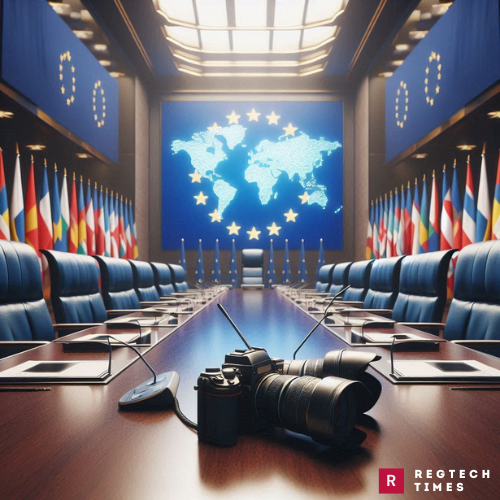In a significant development, leading media organizations and human rights groups are calling on the European Union (EU) to suspend its Association Agreement with Israel and impose sanctions. This unprecedented appeal comes in response to the escalating violence against journalists in Gaza, where the death toll among media professionals has reached alarming levels since the recent outbreak of conflict between Hamas and Israel.
Media Under Attack in Gaza
The call to action, initiated by Reporters Without Borders (RSF) and supported by around 60 other media and rights organizations, draws attention to the perilous conditions faced by journalists in the Gaza Strip. Since October 7, 2023, when Hamas launched a large-scale attack on Israel, more than 130 Palestinian journalists and media professionals have been killed by Israeli forces. Among them, at least 30 were actively working in the field at the time of their deaths.
The organizations highlight that the deaths of these journalists represent not only a severe breach of press freedom but also a violation of international law. The situation in Gaza has also seen the deaths of three Lebanese journalists and one Israeli journalist, making this one of the deadliest periods for the media in recent history. The groups argue that such targeted or indiscriminate killings constitute war crimes and demand a robust international response.
EU’s Association Agreement with Israel Under Scrutiny
At the heart of the groups’ appeal is the EU’s Association Agreement with Israel, a treaty that governs various aspects of the relationship between the two entities, including trade and cooperation. The agreement includes a crucial Article 2, which mandates respect for human rights and democratic principles. The media organizations contend that Israel’s actions in Gaza, particularly the targeting of journalists, directly violate this provision.
Executive Order 14115: The Controversial Israel Sanctions and Their Constitutional Implications
Julie Majerczak, head of RSF’s Brussels office, emphasized the critical role of the media in conflict zones and the importance of holding governments accountable. “The Israeli government is blatantly disregarding the principles outlined in the EU’s Association Agreement. The EU, as Israel’s largest trading partner, must take action. This includes suspending the treaty and imposing targeted sanctions to pressure Israel to stop its attacks on the media and uphold press freedom.”
Media’s Role in Shaping EU Foreign Policy
The media organizations’ call to action comes at a pivotal moment, with the EU foreign ministers set to meet in Brussels on August 29, 2024. The timing of the appeal is strategic, aiming to influence the EU’s foreign policy discussions and potentially lead to a reassessment of its relationship with Israel.
The media plays a crucial role in raising awareness of human rights violations and advocating for accountability. By highlighting the plight of journalists in Gaza, these organizations are pushing the EU to take a stronger stance against Israel’s actions. The suspension of the Association Agreement and the imposition of sanctions would mark a significant shift in the EU’s approach and could have wide-ranging implications for its diplomatic and economic relations with Israel.
Middle East Conflict Escalation: Humanitarian Crisis and Global Security Impacts
International Response
The ongoing conflict in Gaza has emphasized the dangers faced by journalists covering wars and other crises. The restriction of media access to conflict zones like Gaza not only hampers the flow of information but also threatens the safety of those reporting on the ground. The media groups’ call for sanctions is a direct response to these challenges, urging the international community to prioritize the protection of journalists and press freedom.
As the EU foreign ministers prepare for their upcoming meeting, the pressure from media organizations and human rights groups is mounting. The decision they make could set a precedent for how the international community responds to violations of press freedom in conflict zones and beyond.


